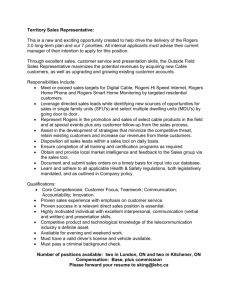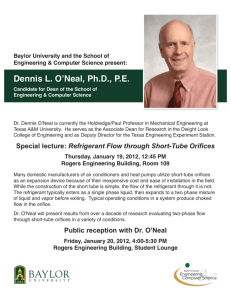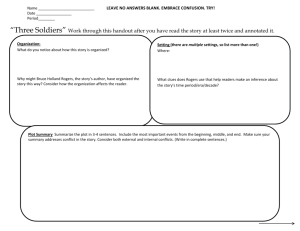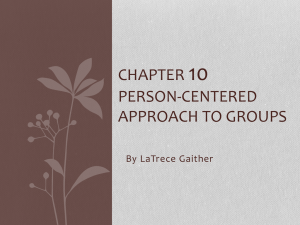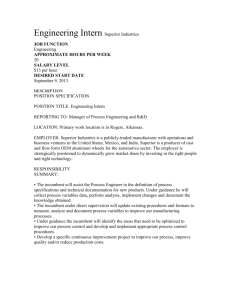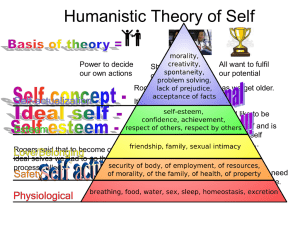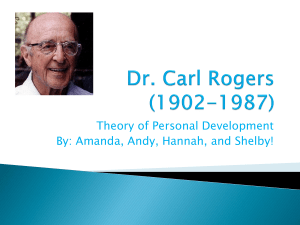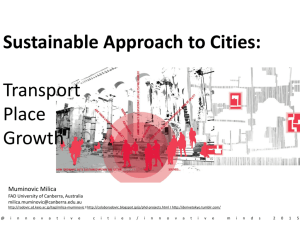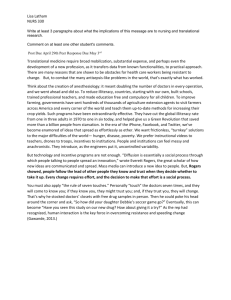Was Carl Rogers a scientist, and is person-centered therapy
advertisement
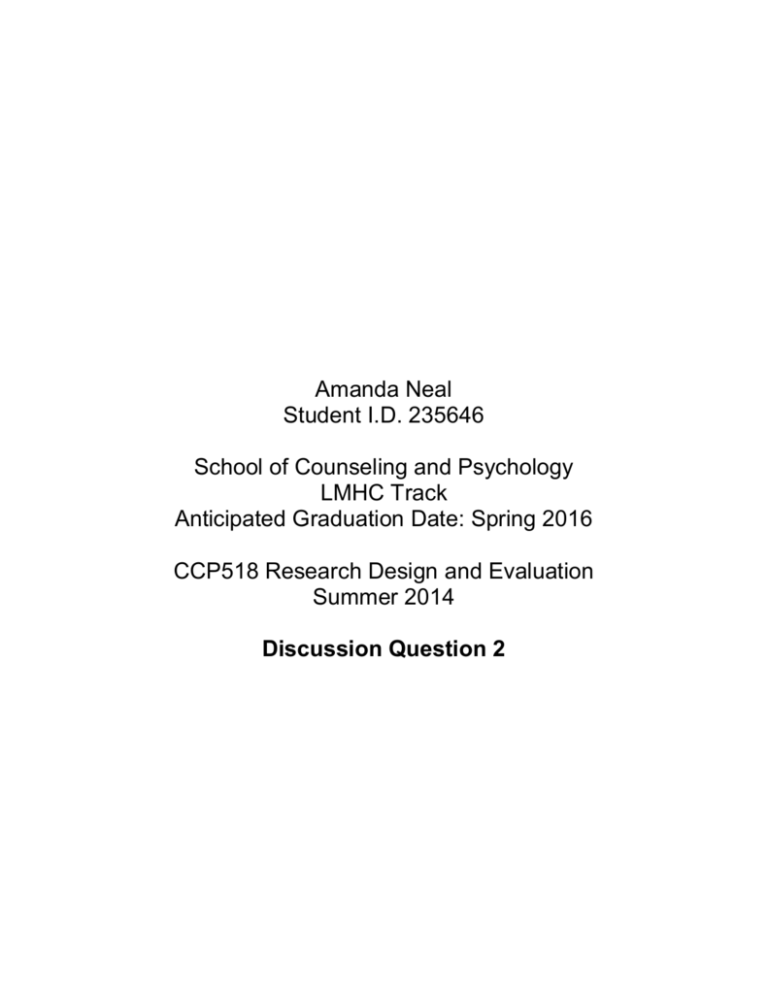
Amanda Neal Student I.D. 235646 School of Counseling and Psychology LMHC Track Anticipated Graduation Date: Spring 2016 CCP518 Research Design and Evaluation Summer 2014 Discussion Question 2 2 A. Neal DQ2 DQ2: Was Carl Rogers a scientist, and is personcentered therapy a science? Why or why not? The purpose of this paper is to identify the meaning of science and discuss whether Carl Rogers, a humanist psychologist that developed the theory of person-centered therapy, was in fact a scientist; and whether his theory can be considered a science. 3 A. Neal DQ2 Carl Rogers himself once debated this issue in an article he wrote in 1955 entitled, “Persons or Science? A philosophical question.” In the article, Rogers stated, “I have felt an increasing discomfort at the distance between the rigorous objectivity of myself as scientist and the almost mystical subjectivity of myself as therapist” (Rogers, 1955, p. 267). Carl Rogers developed the concept of personcentered, non-directive therapy, which is focused on the core principles of compassion, positive self-regard and congruence as necessary in an effective therapeutic setting (Wedding and Corsini, 2014). This form of therapy was groundbreaking at the time as it was counterintuitive to the popular concept of psychoanalysis. This theory eliminated the idea of an 4 A. Neal DQ2 authority figure in therapy and instead offered clients an opportunity to feel “at one” with their therapist. Rogers (1955, p. 267) once stated, “I launch myself into the therapeutic relationship having a hypothesis that my liking, my confidence, and my understanding of the other person's inner world, will lead to a significant process of becoming.” The textbook defines science as “a way of obtaining knowledge by means of objective observations” (McBurney and White, 2007, p.6). One can deduce, therefore, that a scientist is one that obtains knowledge through objective observations. McBurney and White (2007) describe the characteristics of science as empirical (evidence based), objective (other people would see the same 5 A. Neal DQ2 things), self-correcting (able to accept evidence and change beliefs), progressive (there is continual progress), tentative (new information is always emerging), parsimonious (the simplest explanation is usually the correct one) and concerned with theory (how something works). This learner believes that Carl Rogers was certainly a Scientist and that the development of person-centered therapy is most definitely a science. Simply by examining the definition of science as described above and by understanding Rogers’ approach to therapy, once can clearly see that he, in the simplest terms, obtained knowledge through observations. Furthermore, Rogers insisted on testing his new therapy to show that it worked. To Rogers, that meant 6 A. Neal DQ2 objective, quantitative research. …. Rogers recorded therapy sessions on the clumsy glass disks of that time…. Rogers’s group was the first (by 20 years) to analyze every sentence of hundreds of transcripts and to measure outcomes on psychometric (and other newly devised) tests given to clients before and after therapy, and also given to a control group…. He proclaimed new ethics: Recording requires the client’s permission. Confidentiality was emphasized, and the answer to all inquiries was only “The person was in therapy here.” In spirit, his ethics is now accepted, but at the time it was new. “Professional ethics” mostly meant a doctor’s duty to protect other doctors (Glendlin, 1988, p.127). It seems quite clear to this learner that Carl Rogers worked as a scientist and approached his theory of person-centered therapy in a very scientific manner. The theory itself follows many of the characteristics of science – it is empirical, objective, self-correcting, progressive, parsimonious, etc. There 7 A. Neal DQ2 can be little doubt as to Roger’s contribution to the science of psychology and psychotherapy. References Glendlin, E.T. (1988). Obituary: Carl Rogers (19021987). American Psychologist, 43(2), 127-128. McBurney, D.H and White, T.L. (2007). Research Methods, Seventh Edition. Belmont, CA: Thomas Learning, Inc. Rogers, C. R. (1955). Persons or Science? A Philosophical Question. American Psychologist, 10(7), 267-278. Wedding, D. and Corsini, R.J. (Eds.) 2014. Current Psychotherapies Tenth Edition. 8 A. Neal DQ2 Belmont, CA: Brooks/Cole.
